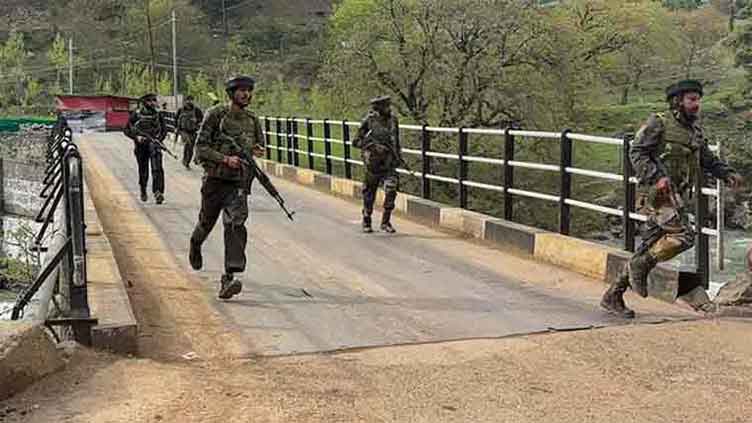The recent Pahalgam false flag operation is yet another example of India’s recurring and desperate attempts to defame Pakistan on the global stage. Following in the footsteps of previous fabricated events like the 2016 Uri attack and the 2019 Pulwama-Balakot incident, this latest episode seems to follow the same failed formula: shift global and domestic focus away from internal failures by creating a false narrative against Pakistan.
These operations, orchestrated under the guise of national security, serve multiple purposes. India tries to damage Pakistan’s global image, weaken its internal stability, isolate it diplomatically, and widen the gap between its military and civilian leadership. But like before, these motives are increasingly transparent and ineffective.
At the core of this strategy lies the political ambition and ego-driven leadership of the BJP, led by Narendra Modi, Amit Shah, and Yogi Adityanath. The Indian government under their control has gradually turned into an authoritarian regime. They are known for suppressing dissent, centralizing decision-making, and reducing institutional independence. Since 2014, their consistent anti-Pakistan rhetoric has become a tool to distract the Indian public from real problems — falling economy, joblessness, and declining democratic values.
Political gain over national interest has become the norm in India. BJP’s decisions, like proposing the controversial “One Nation, One Election” plan and pushing the opaque electoral bond scheme, highlight their prioritization of party politics over public welfare. Many of these decisions have been pushed through parliament without the required two-thirds majority, violating democratic norms and sidelining the opposition.
Transparency and truth are no longer values upheld by Modi’s administration. The government has clamped down on the media to ensure only state-approved narratives are heard. Independent journalism is under attack, with platforms like YouTube and Instagram censoring dissenting voices. Pakistani media channels have been banned, and any alternative perspective is systematically silenced — all to keep the Indian public unaware of the reality.
The growing anti-Muslim sentiment in India is alarming. What began in occupied Kashmir has now engulfed all of India. Extremist leaders like Modi and Yogi routinely make inflammatory statements targeting Muslims. Government machinery, acting under their leadership, demolishes Muslim homes without legal process. This is a clear manifestation of organized Islamophobia that aligns with the BJP’s political agenda to reshape India into a Hindu nationalist state.
Modi’s anti-Pakistan narrative is nothing new. It has long been a tool to cover up his government’s domestic failures, including economic decline, unrest among the rural population, and a worsening unemployment crisis. India’s unemployment rate, which was 7.8% in 2021, rose to 9.2% by 2024. Instead of addressing these issues, the Modi regime continues to fan hyper-nationalist sentiments to distract the masses.
The government has also used nationalism as a smokescreen to push the Hindutva ideology. Under the pretense of patriotism, the BJP is enforcing an exclusionary system that marginalizes minorities. Toxic campaigns like “Love Jihad” and “Land Jihad” aim to demonize Muslims further and stir communal hatred. Behind these campaigns is a calculated attempt to divert attention from India’s democratic erosion and deepening economic inequality by provoking hostility towards Pakistan.
The Pahalgam incident, just like the Pulwama and Uri attacks, exposes the Indian government’s continued reliance on deception and division. As long as Modi’s regime clings to this strategy, peace and stability in the region will remain elusive.


